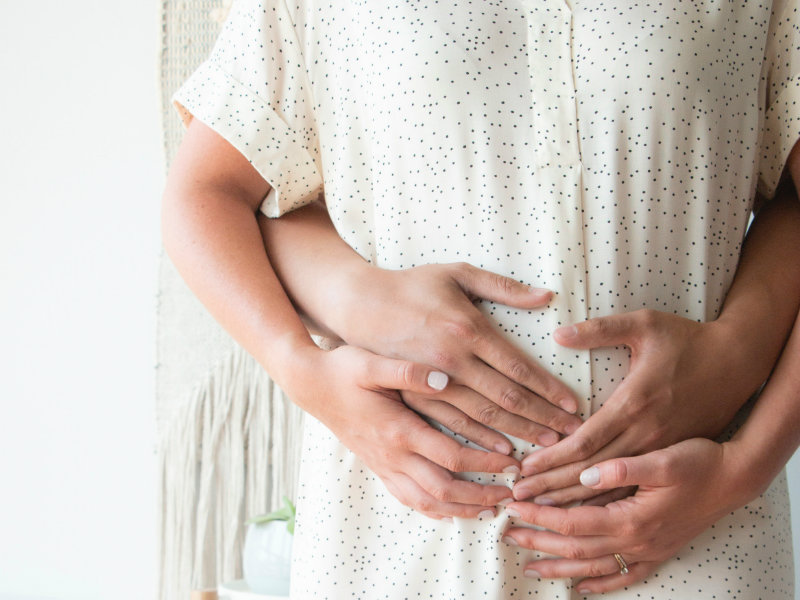Pregnancy can be a huge change to a woman’s body. During the act of sexual intercourse, the sperm fertilizes the released ovum. This then results into a pregnancy after the fertilised ovum gets implanted into your uterus. Generally, a pregnancy can last anywhere from 38 to 40 weeks. During this time frame different factors can affect your pregnancy. Therefore, it is a good idea to start learning about the various aspects of pregnancy so that you can take good care of yourself as well as your baby.
Symptoms
The symptoms of pregnancy are different according to each trimester. So here we explain them to you according to each trimester.
- First Trimester(week 1 to end of week 12)
Beginning even from the first trimester there will be several hormonal changes that will cause symptoms. A missed pregnancy is usually the first symptom that will cause you to perform a pregnancy test. Other symptoms in this trimester include:
- Nausea
- Vomiting or morning sickness
- Increase or decrease in weight
- Increased frequency of urination
- Headache
- Increased cravings or dislikes of certain foods
- Tenderness or swelling of breasts
- Mood swings
- Constipation
- Heartburn
- Fatigue
2.Second Trimester(week 13 to end of week 26)
Generally women find that the symptoms of the second trimester are much more tolerable than that of the first. Symptoms such as fatigue and nausea are much milder or even absent. However, the main symptoms in this trimester occur as a result of the increase jm the size of your abdomen which occurs extensively during these weeks. Such symptoms include:
- Pain in your back, thigh, groin or abdomen
- A dark pigmented line running from your umbilicus to the pubic hairline(linea nigra)
- Stretch marks(stria gravidarum) on your abdomen, thighs, breasts or buttocks
- Darkened patches of skin may be seen on ypur face, especially on your cheeks, nose or forehead. They are called melasma or chloasma faciei and are often present bilaterally.
- Slight swelling of face,ankles or fingers. (However if swelling is sudden and extreme, seek medical help immediately as this could be due to preeclampsia!)
- Numbness or tingling of hands and palms
3. Third Trimester(week 27 upto end of the pregnancy)
Many of the symptoms of the second trimester will continue in the third one. As your baby gets bigger you might feel the urge to use the restroom more frequently. Some women also complain of difficulty in breathing. However do not worry, because as soon as the baby is born comedies symptoms will go away on their own. Symptoms in this trimester include:
- Heartburn
- Hemorrhoids
- Breast tenderness
- Breasts may leak colostrum
- Difficulty in falling asleep
- Contractions( may either be real or false labor)
- Swelling of face, fingers or ankles
Nutrition
Since your baby will derive his or her nutrition from the food that you eat, it is of extreme importance that you eat an adequate and balanced diet. Generally, during your second and third trimesters, the doctor will recommend you to add 300 calories to your normal diet. You will also require additional amounts of calcium(1200 milligrams), folate(600-800 micrograms) and iron(27 milligrams).
Sources of calcium include:
- milk,cheese,yogurt, tofu, eggs, pudding
Sources of folate include:
- beans,lentils,nuts,dark green leafy vegetables, eggs
Sources of iron include:
- citrus fruits,dry fruits, lean beef, poultry, meats, dark green leafy vegetables, enriched breads or cereals
This will help prevent anaemia which is a common but deadly symptom seen in pregnant women. Also add proteinous foods such as meat, nuts and beans to your diet, since proteins will help in growth of your uterine and breast issue. Also try your best to eliminate junk foods and carbonated drinks from your diet.
Fitness
On average, women gain about 25-35 pounds during their pregnancy. Heavier women might have less weight gain in comparison to leaner women. However that is absolutely normal. Many people wrongly believe that physical activity is a no-no during pregnancy. In fact, a moderate amount of physical exercise is important to keep your baby as well as yourself healthy. Although you should refrain from extreme sports(such as rock climbing, soccer, cricket or basketball), it is a good idea to take up swimming or walking. Nowadays, there are special yoga and aerobics classes directed at pregnant women too. So why not go for it? You might make new friends for yourself as well as your baby.
Labor/Delivery
Labor or delivery is the process of expulsion of the baby, placenta,membranes and umbilical cord out of the uterus. Signs of beginning of labor include water break, diarrhoea, change in color of vaginal discharge, loose-feeling joints, dilatation of the cervix,increased cramps and back pain. You may also get the feeling of the baby “dropping”. On average, active labour lasts for 8 hours in new mothers and it may be lesser in those who have previously given birth. The baby may be born through a normal vaginal delivery, a Caesarian section or through an instrumental delivery(in which forceps or vacuum suctions are used to help expel the fetus through the vaginal canal).



